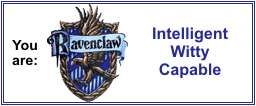The Mahabharata
WENDY DONIGER
Globe and Mail
September 12, 2008
To begin with, The Mahabharata is certainly one of the world's biggest books, a text of about 75,000 verses or three million words, some 15 times the combined length of the Hebrew Bible and the New Testament, or seven times the Iliad and the Odyssey combined, and a hundred times more interesting.
It is an epic poem composed in ancient India, some time between 300 BC and 300 AD (it takes a long time to produce three million words), in Sanskrit, the language of the sacred texts of Hinduism as well as of the secular literature of the court, related to Latin and ancient Greek and functioning, rather like medieval Latin, as a kind of lingua franca among the many vernacular languages of India.
It is attributed to a sage named Vyasa, who produces not only the text but the two grandfathers of the protagonists, impregnating two queens on behalf of their dead husband. The central story is about five princes, whose grandfather is Vyasa and whose fathers are gods.
They are forced into exile for 12 years, during which they have many adventures, listen to hundreds of wonderful stories, and return to fight a cataclysmic battle in which almost everyone on both sides is killed.
As the text was retold over the centuries, both in Sanskrit and in translation into more accessible spoken languages of India, hundreds of other stories, as well as philosophical arguments, were attracted to it as to a magnet, so that it became a great compendium of myth, folklore and social theory, a kind of walking encyclopedia of Hinduism.
It grows out of the oral tradition and then grows back into the oral tradition.
It flickers back and forth between Sanskrit manuscripts and village storytellers, each adding new gemstones to the old mosaic, constantly reinterpreting it.
The loose construction of the text gives it a quasi-novelistic quality, open to new forms as well as new ideas, inviting different ideas to contest one another, to come to blows, in the pages of the texts.
The text itself boasts, with justification, "What is here is also found elsewhere, but what is not here is found nowhere else."
The conversation between the incarnate god Krishna and Prince Arjuna on the eve of the great battle has become one of the central texts of Hinduism, called the Song of God (Bhagavad Gita).
Other parts of the text, too, have been lifted out and become a part of the cultural tradition, such as the story of King Nala and his wife Damayanti, who become separated when he becomes a compulsive gambler and loses his kingdom. Eventually they are reunited.
The five princes marry one woman, Draupadi, who is worshipped as a goddess in India to this day, particularly in the south.
It has been well said that no one in India ever hears The Mahabharata for the first time.
Its greatness lies also in its dark moral complexity. The real protagonist of the poem is neither any of the human heroes nor any of the many gods who take part in the story, but dharma, the moral and religious law of the Hindus.
Dharma is also a god, who fathers the eldest of the five princes and appears from time to time to test him, usually in disguise (once as a dog, an animal that Hindus regard as unclean, a stunning form for the religious law to take).
Time and again when a character finds that every available moral choice is the wrong choice, or when one of the good guys does something obviously very wrong, he will mutter, or be told, "Dharma is subtle," thin and slippery as a fine silk sari, elusive as a will o' the wisp, internally inconsistent as well as disguised, hidden, masked.
People try again and again to do the right thing, and fail and fail, until they no longer know what the right thing is. The heroes are tragically flawed, each of them undone by the shadow side of his particular virtue.
The Mahabharata deconstructs dharma, exposing the inevitable chaos of the moral life. In particular, it exposes the horror of war, even while it justifies it as part of the inevitable violence of human life. This, too, is its greatness.
Wendy Doniger is Mircea Eliade Professor of the History of Religions at the University of Chicago, and author of many books about Indian literature, including "Dreams, Illusion, and Other Realities" and a translation of the "Kamasutra."
Subscribe to:
Post Comments (Atom)









No comments:
Post a Comment